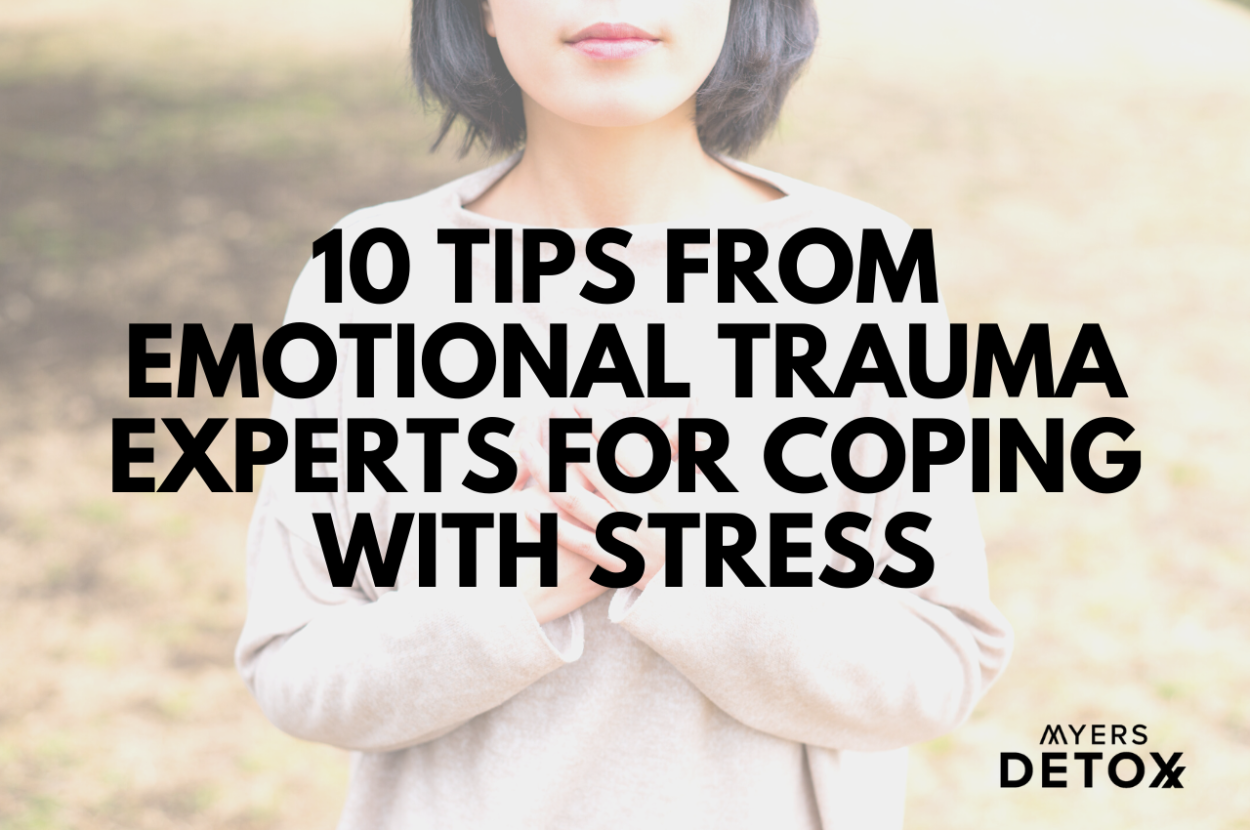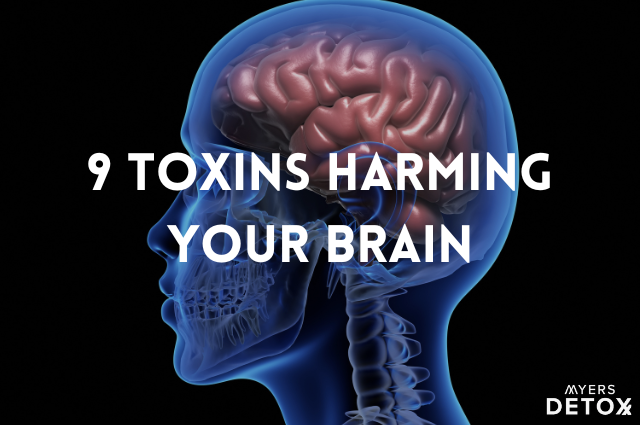2020 has presented us with many challenges and obstacles we couldn’t have foreseen and certainly would not have chosen. I have written extensively about the different ways that you can support your immune system and promote health (both mentally and physically) during these trying times, but even the most regimented detoxification program can’t uproot the emotional trauma that we are experiencing due to the pandemic.
For that reason, I spoke with three experts in the field of emotional trauma to bring you the top ten things you can do to combat the trauma of 2020.
As my concern around the mental health of my community, friends, and loved ones has grown over the last few months, I decided it was time to reach out to some experts in the field for some advice. I spoke with three trusted professionals in the field of neurodevelopment, functional medicine, functional neurology, and emotional health to figure out exactly what we can all be doing to combat the trauma of 2020 and start 2021 feeling fresh, renewed, and more resilient.
The three practitioners I spoke with provided a wealth of information, which I boiled down into the top ten things you can do to combat the trauma of 2020.
These experts include:
- Niki Gratrix, an internationally renowned trauma expert specializing in ACES – Adverse Childhood Experiences
- Carol Garner-Houston, an expert in neurodevelopment, the autonomic nervous system, and vagal regulation
- Dr. Ray Gin, doctor of functional and holistic medicine with expertise in functional neurology and unresolved emotional trauma
In this article, you’ll learn:
- Why you need to be activating your vagus nerve daily for emotional resilience
- The subconscious impact that media is having on your emotional state
- How social isolation is doing much more harm than making us lonely
- The power of breath, nature, sleep, and movement to elevate mood and combat stress
10 Tips To Combat The Stress and Trauma of 2020
#1 Stimulate Your Vagus Nerve
One of the side effects of stress is the activation of your sympathetic nervous system. In sympathetic mode, you go into the “fight or flight” response, which keys you up to be more vigilant and act as if your life is in danger. While this is a natural response that typically subsides once the threat is neutralized, in severe stress or trauma, your nervous system can get stuck in sympathetic mode, making even the smallest inconveniences feel like a serious threat.
Therefore, finding ways to switch your nervous system over to parasympathetic mode (rest and digest) can provide some much-needed peace and resolution. This is where your vagus nerve comes in.
Your vagus nerve runs from your head to your gut and is one of the primary components of your parasympathetic nervous system. Stimulation of this nerve is associated with heightened resistance to stress and is correlated with higher heart rate variability (HRV).
Niki Gratrix describes several ways that you can stimulate your vagus nerve, including:
- Breathing exercises
- Loving-kindness meditation
- Yoga
- Tai chi
- Gratitude journaling
Niki Gratrix offers an Emotional Detox Program which only helps you to heal stuck emotions, but it also incorporates cutting-edge psychology along with tips for enhancing emotional intelligence and stimulating your vagus nerve. It includes the use of tuning forks to help clear your field so that you can experience more energy, balanced emotions, and a greater sense of joy.
You can also work with one of the Brain Harmony occupational therapists for even deeper one on one advising. Brain Harmony creates customized programs for the whole family using a unique listening device to support better emotional control, brain function, and behavior.
Furthermore, Dr. Ray Gin shared a unique technique:
“You can activate the vagus nerve by tickling the roof of the mouth with your tongue and do that for just 10 to 20 seconds. Then, I have people sing a song for 20 seconds, singing loudly enough to move the palate. It’s like when you go to a doctor, and they say, ‘Aah.’ You want to get this whole area moving because that activates the vagus nerve.
Then, you grab a class two red laser (Quartet is a great example, It’s got to be about between 635, 650 nanometers), and you shine the laser light at either the base or middle of the skull while singing or tickling the roof of your mouth for 20 seconds.
Do that a couple of times a day. That helps up-regulate the vagus nerve, which is about 90% of the parasympathetic system. If you do that, it’ll mitigate stress, help digestion, help with relaxation, and help the body go into healing and repair mode.”
#2 Manage Your Mindset
All three practitioners I spoke with agreed on this one — mindset is key.
Although 2020 has presented us with no shortage of challenges, finding the silver lining is crucial to helping you cope with and manage stress.
It’s not to say that you must avoid feelings of sadness, disappointment, frustration, anger, and fear. Feeling your feelings is an important part of healing. However, along with all the difficult emotions, if you can find the little rays of sunshine that have peeked through the clouds, it can help to train your brain to think more positively.
Research shows that our brains have something called the negativity bias, steering our consciousness towards all the things that could go wrong at any moment. This makes us look out the window on a rainy day and say things like “ugh, well now I need to change my shows and grab an umbrella, and I’ll probably get stuck in traffic on my way home from work,” instead of “oh thank god, the flowers are finally going to get the water they need, and hopefully this rain will bring that tree in the neighbor’s yard back to life[1].”
The negativity bias keeps us in a state of worry or disappointment, likely as a result of evolution and survival of the fittest. If our ancestors lived with their rose-colored glasses on all the time, they might have mistaken a fierce lion for a furry friend, and the human race wouldn’t have made it very far.
With that being said, research shows that having a positive outlook on life can shift you both psychologically and physiologically and have a profound impact on stress management. Some health benefits associated with positive thinking include[2][3]:
- Increased lifespan
- Lower rate of depression
- Lower stress
- Greater resistance to colds
- Improved cardiovascular health
- Better coping skills during times of high-stress
A few examples of how you can shift your mindset around 2020 and the trauma it has caused is to contemplate things like:
- Being able to spend more time with your immediate family
- Less work stress
- You don’t have to sit in traffic
- More time to cook healthier meals for yourself and your family
- More time to develop new skills and habits
- The benefits that the pandemic has had on the earth (fewer carbon emissions)
The benefits will vary for every person and may not even have a direct relation to the pandemic at all. The key is to reach inside yourself and look for the good — there is always something to be grateful for if you search deep enough. And what many people find surprising is that once you turn on that gratitude switch in your brain, more and more things to be grateful for will come to mind.
#3 Breathwork
Breathwork is an excellent way to calm your mind and deal with stress. There are hundreds of breathing techniques out there, and most (if not all) will have an impact on your mental state.
In particular, slow, deep breathing can slow your heart rate and activate your parasympathetic nervous system via the vagus nerve. In addition, taking slow deep breaths enhances heart rate variability and therefore is an excellent way to improve your resistance to stress[4].
Research also shows that breathwork can enhance your psychological flexibility, helping you to shift into a state of well-being faster and more efficiently when presented with stress or a trigger[5].
#4 Prioritize Sleep
Optimizing your sleep is one of the most important things you can do for overall health. While you sleep, your body undergoes hundreds of chemical processes that help your brain and body stay energized and fresh.
The American Psychological Association states that “adults who sleep fewer than eight hours a night report higher stress levels than those who sleep at least eight hours a night.” In addition, 21% of adults report feeling more stressed when they get a poor night of sleep[6].
The sleep-stress connection is irrefutable; Carol Garner-Houston recommends that sleep be prioritized every day. Although sleep can be evasive, finding ways to get a restorative night of sleep can make a huge difference in the way you process stress and trauma.
There are many simple techniques that you can use to enhance your quality of sleep. Sound machines, eye masks, and earplugs are all excellent ways to block out the world. In addition, try limiting your exposure to blue light from computers and other electronics after the sun goes down. You can either turn your devices off or start wearing blue-light blocking glasses.
#5 Exercise
Exercise is one of the fastest and most effective ways to turn your mood around. When you engage in physical activity, it boosts your feel-good hormones (endorphins), and regular exercise can increase feelings of self-confidence and improve states of anxiety and depression.
Exercise is also a great way to improve your sleep — a nice two-for-one, if you will[7].
Take time to make sure your kids get out when they can. Even if this is just a walk around the neighborhood or playing a game of catch or frisbee, any movement will help enhance their mood and cope with being stuck at home all day.
You can also try online workout videos and see if the kids want to join in. There are thousands of options on YouTube and other streaming services to choose from, everything from pilates to hip hop to strength training.
#6 Limit Media Exposure
Our media system is always pumping out stories that will activate the negativity bias of your brain. Unfortunately, this year has given them plenty to work with. While I don’t suggest living under a rock, you really don’t need to hear every angle of every issue that’s happening on a daily basis.
Furthermore, research shows that humans are more psychologically activated by negative news than positive news, making it twice as hard to look on the bright side when things around us seem to be falling apart[8].
Some simple ways to cut back on media exposure include:
- Turn off your news notifications on your phone
- Put your phone away during work or on airplane mode, so you’re not tempted to check the news
- Delete the apps that you’re most addicted to, and only re-download once a week for an hour or so.
- Pick one or two nights a week to get caught up on the news instead of tuning in for your daily dose of negativity every evening.
It’s a good idea to track how the media is impacting your mindset. If you find that even watching the news once a week is putting you over, cut down further. Don’t worry — if the world is going to implode, someone will let you know.
#7 Physical Touch
Carol Garner-Houston explains that physical touch is one of the most important things we can give ourselves to feel grounded and cared for. When you engage in an embrace or physical touch with someone you care about, it sends a signal to your nervous system that you are safe.
In an experiment that was conducted back in the 1950s, a researcher found the devastating effects that isolation had on monkeys when they were separated from their mothers. In the absence of physical touch, the monkeys became withdrawn, depressed, and some even exhibited self-mutilation.
In humans, research shows that physical touch can help calm feelings of anxiety, and when we are deprived of touch, it can enhance feelings of depression and other psychiatric disorders[9].
Now more than ever, we are being deprived of regular physical touch. Physical interactions like shaking hands and giving hugs that were once a regular part of our daily lives are now only reserved for the few people we live with or feel safe coming into contact with.
As much as you can, reach out to the people around you for a hug, give your kids an extra goodnight kiss before bed, and prioritize physical intimacy in your relationships.
#8 Yoga
Yoga offers the perfect intersection of both breath and movement. As previously explained, breathwork can help to activate your vagus nerve, increase heart rate variability, and help you feel more resilient to stress.
Likewise, exercise increases self-confidence and enhances your feel-good hormones.
What makes yoga particularly intriguing during these times is that you don’t need any equipment to get a good workout. In fact, if you have a soft carpet, you don’t even need a yoga mat. There are also several different types of yoga to try, so if you don’t like one style, you can move on to another.
It really doesn’t matter what type of yoga you engage in, as long as you feel your body moving, and your focus stays on your breath.
#9 Cold Shower
Niki Gratrix recommends incorporating a 30-second cold shower into your daily stress-relief routine to enhance vagal tone and increase heart rate variability.
Research backs up her recommendation, showing that cold stimulation can reduce signs of stress. It’s proposed that some psychological disorders like depression evolve in part due to the lack of natural stressors that we face today — like the need to adapt to cold or hot temperatures[10].
Exposure to cold activates the nervous system and increases your levels of endorphins. At the same time, due to the high density of cold receptors in the skin, a cold shower can send an overwhelming amount of electrical impulses from peripheral nerve endings to your brain, which may result in an antidepressant effect[11].
Although 30 seconds may sound like a lot at first, you can start slow with just 10 to 15 seconds and work your way up. Many people find that they begin to enjoy the process much more after two or three cold showers.
#10 Get Out In Nature
Although you may not be able to surround yourself with friends and family at the moment, you can still get out and surround yourself with nature.
Research shows that being in nature is an effective way to boost your mood and help you feel more grounded[12]. In fact, one study specifically assessed the impact that having a view of greenery would have on the psychological toll of COVID.
In the study, the researchers conducted a questionnaire with 3000 participants. They determined that the ability to be in nature (and view nature) was associated with increased self‐esteem, life satisfaction, subjective happiness, and decreased levels of depression, anxiety, and loneliness[13].
If you absolutely cannot get out in nature (maybe you live somewhere extremely cold, or perhaps you’re a city dweller), you can also try a vitamin D lamp, which will provide a similar feeling as being out in the sun.
Takeaway
Very few people will look back on 2020 fondly and relish in the beautiful memories of the past 12 months. With that being said, this past year doesn’t need to become a new trigger for stress and trauma.
If 2020 has taught us anything, it’s that personal care is crucial, and you truly can’t take care of anyone else if you aren’t caring for yourself.
Try out one, two, three, or all of the techniques suggested by the trauma experts in this article. Even if you can only nail down one, it will be much more helpful than trying to white knuckle it through the stress and pain that this year has presented.










